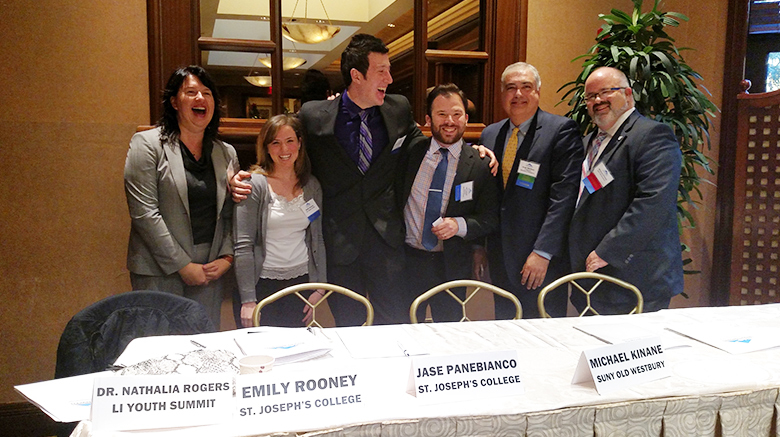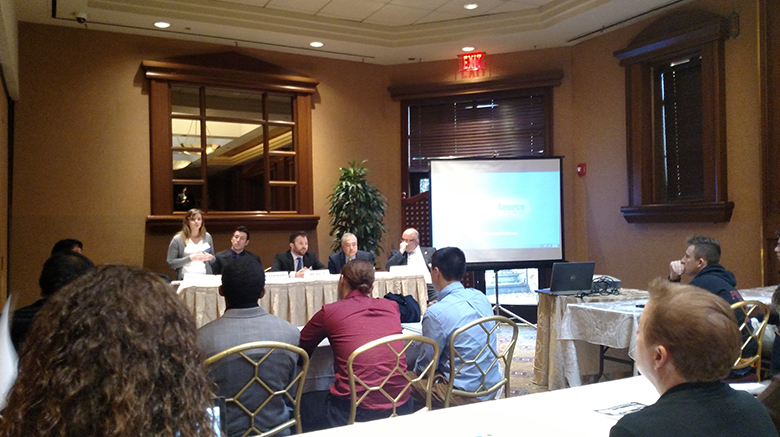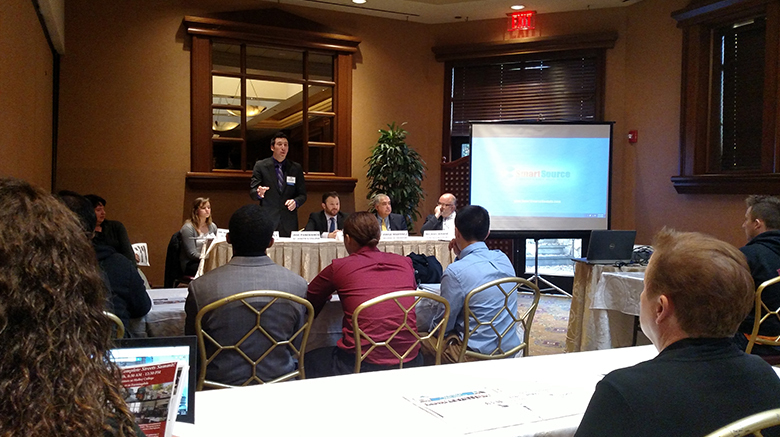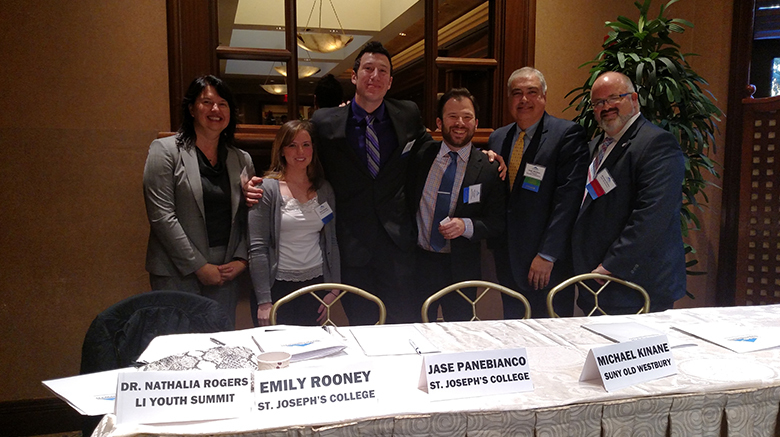Living on Long Island is expensive. For most young people, it’s downright unaffordable.
High property taxes, a lack of affordable housing and an absence of scalable career opportunities have made the region prime for youth exile.
To give a voice to this concerning topic, Vision Long Island held its 15th annual Smart Growth Summit on Dec. 2 at Crest Hollow Country Club in Woodbury. Vision Long Island’s events promote a more sustainable Long Island, with this year’s Growth Summit featuring more than 10 panels on such topics as increasing affordability and small-business development. A panel that discussed Retaining Youth on Long Island included two high-achieving SJC students.
Jase Panebianco, a quadruple major in math, math and computer science, political science and speech communications, and Emily Rooney, a business major, comprised two-fifths of the Retaining Youth panel. Also participating were Freeport Deputy Mayor Jorge Martinez, SUNY Old Westbury Assistant to the President for Advancement Michael Kinane and the Suburban Millennial Institute’s Jeff Guillot.
Incentivizing Long Island Internships
Panebianco and Rooney fielded questions, voiced opinions and shared potential solutions with an audience that included the president of SUNY Farmingdale, high school students, faculty from several local colleges and community members.
Rooney spoke on the need for affordable education. And, equally important, the need for more substantial paid internships.
“Many of my friends are not finishing their degrees. They don’t have the financial preparedness to take on any debt,” Rooney said, explaining that on Long Island, holding more than one job is typically necessary to live on your own. This makes the prospect of many Long Island-based unpaid internships less appealing.
“Why are you going to go to an internship for hours when you can spend those hours at your job and make money for it?” she said. “Experience is definitely important, but we need to get more from internships than just experience.”
“Relying on the Long Island Bus System”
Panebianco echoed his classmate’s sentiment on the need for paid internships, and suggested improvements to infrastructure as one solution to retaining Long Island’s young population.
“Volunteer-based internships are very appealing to companies, but not so much to students,” Panebianco said. “As a soon-to-be graduate of college, I need a place to live that’s close to the salary I’ll be getting. Long Island has a high cost of living, and commuting is very large in Long Island — I have a lot of friends who have to rely on the bus system. We need to expand our busing and transportation at the mass-transit level.
“That may encourage students to stay on Long Island, go to school and more exposure to Long Island businesses,” he added.
While Panebianco and Rooney represented the panel’s student contingent, Kinane, Martinez and Guillot emphasized the ongoing efforts to improve living conditions on Long Island. Revitalized downtowns, such as those in Patchogue, Farmingdale and Riverhead seek to attract new industries and small businesses. Additionally, alternatives to traditional out-of-college office jobs, such as the entrepreneurial work of LaunchPad and WeWork, are also are the rise.
Vision Long Island promotes more livable, economically sustainable and environmentally responsible growth on Long Island through Smart Growth. Smart Growth focuses on redevelopment and open-space preservation. It supports mixed-use, mixed-income communities that are convenient, attractive, pedestrian-friendly and make affordable housing and public transportation desirable and realistic.




